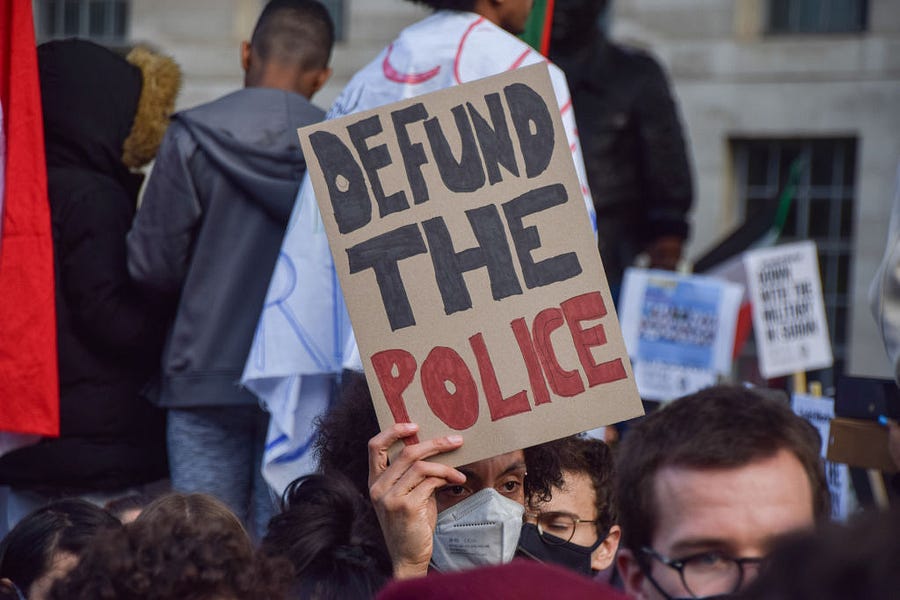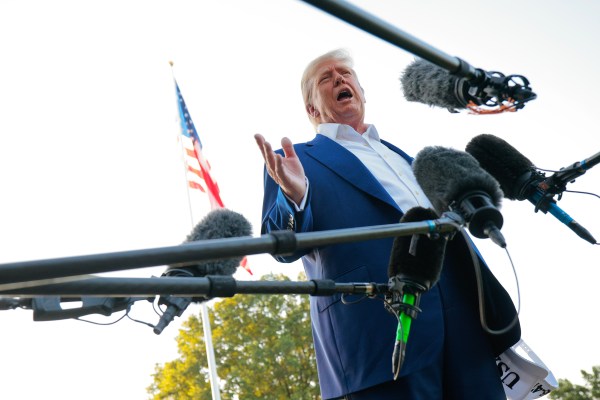In far too many debates, actors at every level are taking absurd, untenable positions, alienating potential supporters. The reasons for this boil down to tribalism, echo-chamber thinking, and an understandable but misguided belief that any concession to reality will be used by foes, or alienate allies.
Take, for example, the Republican National Committee.
In censuring Reps. Liz Cheney of Wyoming and Adam Kinzinger of Illinois, the RNC put out what has to be one of the least defensible resolutions in the history of American politics, accusing two of its own elected representatives of engaging in “persecution” of “ordinary citizens engaged in legitimate political discourse,” by serving along with their Democratic colleagues on the January 6th Congressional Committee.
This stance is a moral horror and factually inaccurate. No rational person familiar with January 6 could think that it was simply “ordinary citizens” engaging in “legitimate political discourse.” Look at the numbers: more than 150 convictions, 38 of which resulted in prison time, with more coming. Many charges are for picketing inside the Capitol, but there are others for assaulting officers with a dangerous weapon, resisting officers, obstruction of official proceedings, of interstate communication of threats, and even of seditious conspiracy.
RNC Chair Ronna McDaniel attempted a cleanup, claiming the resolution was referring to people who were involved in the events, but didn’t personally engage in violence, who were being “persecuted.” She didn’t identify who was facing “persecution,” but event organizers who have resisted subpoenas from the committee, such as Steve Bannon (who may well already be in prison if not for a last-minute commutation from former President Trump) and other high profile political operatives are the only people who plausibly fit McDaniel’s bill. These were not “ordinary citizens” who aimlessly wandered into a protest that went awry. Her cleanup just causes more problems.
This stance is also politically toxic. According to a poll last month, 71 percent of voters support continued congressional investigation, with only 28 percent opposing, which is a few points above what it was in a previous poll. In other words, support for the investigations is both overwhelming and growing. Saying the perpetrators of January 6 were engaged in “legitimate political discourse” while condemning that investigation would undoubtedly poll far worse.
This is more than just taking the wrong side of a “wedge issue,” i.e., an issue your base feels passionately about despite being politically unpopular. If this were merely a wedge issue, the RNC could simply take the position that Congress shouldn’t continue its investigation, citing the need to move on, something Democrats did in the late ‘90s after the Clinton impeachment. Their position would be unpopular, but might not register. Actually defending those involved in January 6 is far more damaging.
Why, then, did the RNC take this stance?
Partly, it’s groupthink. But it’s more than that. Another part of it is the belief, as one political operative told me, “They (Democrats) are trying to use the events of January 6 to delegitimize the Republican party,” or even “delegitimize all dissent.”
In other words: This stance is being taken not because it is true, but because if we concede the obvious—specifically, that it was, as Senate Minority Leader Mitch McConnell wisely said, a “violent insurrection for the purpose of trying to prevent the peaceful transfer of power after a legitimately certified election from one administration to the next”—that it will be used by “them,” against “us.”
McConnell is a hard-nosed partisan, but he recognizes that denying the plain truth actually harms partisan interests. Telling persuadable Americans not to believe what they see with their own eyes is profoundly alienating and creates a backlash. Pointing out overreaching claims by the other side requires admitting inconvenient reality, not denying it.
Yet, in spite of this, taking indefensible stances so as not to concede an inch to the “other side” is a dynamic that is playing out across our civic discourse. It’s bleeding into religion, education, public health, and race relations.
Least you think this is a purely right-wing phenomenon, perhaps the most toxic stance taken by any movement in the last five years is the so-called “defund the police,” movement, which, in the wake of the Floyd murder, sought to fix problematic policing by literally removing funds from, or abolishing, the police.
While many Democratic politicians embraced this wildly unpopular movement (as did many in the media and academia) the latest polling shows that an overwhelming majority of black Americans, whom the movement is supposedly in service of, oppose defunding the police. South Carolina Democratic Rep. Jim Clyburn, the highest-ranking African -American Democrat in Congress, rebuffed many on his own side, taking the entire project to the woodshed, specifically blaming it for Democratic losses in moderate districts.
Yet why was this slogan embraced by many on the left and echoed daily in the media for months? Some actually believed it. This is where the “echo chamber” part comes in. Too many in elite institutions, media, universities, progressive think tanks, and so on, listen only to themselves. Social media makes this problem worse. When many smart people on the left tried to make the argument that “defund” or “abolish the police” was really just a stand-in for defensible reforms, true believers published an op-ed in the New York Times, headlined “Yes, We Literally Mean Abolish The Police.” Many opposing voices kept quiet, fearing any criticism of this maximalist slogan would be seen as denying there was a problem at all. A concession to “racists,” is how they might put it.
But the “defund the police” movement made Joe Biden’s campaign in 2020 much more difficult, something Biden himself recognized. Also, it was socially as well as politically toxic. It would be impossible to gauge the damage such a slogan did in terms of how people viewed law enforcement, vis-à-vis other factors such as the pandemic and residual causes. But it defies credulity that a nationwide, systematic demonization of the police had no role in the corresponding rise in crime. This hurt big cities most of all, which are disproportionally black, again, showing how taking indefensible stances actively hurt the ends its proponents claimed to desire.
It also made progress on fixing problematic police practices more difficult. There’s been increased acknowledgement across the political divide that there are systemic issues concerning policing, that predominantly affect African Americans. I’ve personally spoken with Trump administration officials who confirmed high-level talks on various issues that involved even some left-wing groups to take various actions aimed at reducing these kinds of problems, only to fall through, essentially, because they were afraid of being seen cooperating with Trump. South Carolina Republican Sen. Tim Scott has run into trouble with his compromise bill, which could have gotten significant bipartisan support, for similar reasons.
Yet conservatives are afraid of maximalists in their own base as well. Indeed, as bad as the left has been at handling race issues, far too many on the right take a toxic stance of their own on this issue, de facto insisting that any discussion of police violence or other issues disproportionately affecting African Americans is de facto illegitimate.
Just ask Mitt Romney.
In 2020, Romney marched in a protest in the wake of the murder of George Floyd. The protest was not organized by the official Black Lives Matter organization, but by several D.C. area churches. Romney said he did so to protest “racism and brutality.”
In a non-hyper-politicized world, this would be innocuous. It seems highly unlikely any persuadable voter actually thinks of themselves as supporting racism and brutality. But you could be fooled into thinking otherwise if you gauged the reaction from the Trump White House and certain corners of the right-wing media, which demonized Romney, believing he gave cover to the left.
Romney, particularly as a former presidential nominee, knew his decision to march would get noticed. Yet I suspect he knew that most Americans are people of goodwill and are perfectly comfortable addressing issues primarily affecting black Americans and are horrified by obviously racist killings, such as the murder of Ahmaud Arbery. This is clearly shown in polls. Showing Americans, particularly black Americans, that he took their concerns seriously might create openings.
Yet, I lost count of the number of people who wanted to talk, at length, about the petty crimes Floyd and Arbery had previously engaged in, as if it minimized or excused their murder, and attack not just the BLM organization, but the entire idea. Not a majority, but a significant section of the right either opposed, or was unsure, about the verdict convicting Derick Chauvin of Floyd’s murder.
I could easily discuss, in detail, dozens of other examples. Take the pandemic. How many times have you heard stances that amount to: “We don’t just need adults to wear masks in crowded situations, we must mandate that small children to wear them in school, around vaccinated teachers?” in spite of the fact that COVID poses very little risk to children? Or, on the other hand, “COVID Vaccines don’t really work very well,” citing some preposterous theory in spite of staggering amounts of evidence to the contrary. What about religion? Some Christians want to reframe their entire religious history, and the history of their country, almost entirely in light of race issues, while others seem to want to deny that any vestiges of racism meaningfully exist and decry as anti-Christian any suggestion to the contrary.
The list goes on and on. In each case, a reluctance to acknowledge a more metered stance is in part an echo chamber, and in part stems from the fear that any lesser stance will lead to the “other side” getting a win. Yet in each case, instead, it’s causing a backlash, giving the “other side” an even bigger win.
Prof. Robert Talisse of Vanderbilt University recently explained, “People radicalize in concert with like-minded others due to the mutual affirmation of a shared identity.” In other words people become more radical than they started when the joined the group, and become more skeptical of outsiders. It becomes a self-fulfilling prophecy when remaining a part of the group not only requires us to pay homage to ideas we think are false, but to refuse to take into account ideas we think are true. This dynamic turns away potential converts and actually makes progress more difficult.
Those seeking any sort of public leadership need to stop defending the indefensible because of tribalism or fear. This instinct is socially and politically suicidal, harmful to any legitimate cause. Admitting the truth, even if seemingly inconvenient, is not only right, but serves long term interests. Because Americans won’t ignore the obvious forever.
Cliff Smith is a lawyer and a former congressional staffer. He lives in Washington, D.C., where he works on national security related issues.






Please note that we at The Dispatch hold ourselves, our work, and our commenters to a higher standard than other places on the internet. We welcome comments that foster genuine debate or discussion—including comments critical of us or our work—but responses that include ad hominem attacks on fellow Dispatch members or are intended to stoke fear and anger may be moderated.
With your membership, you only have the ability to comment on The Morning Dispatch articles. Consider upgrading to join the conversation everywhere.